On Sunday, Joe Biden dropped out of the race for his party’s nomination and quickly endorsed his vice president, Kamala Harris. In a little more than 24 hours, she has consolidated the party around her candidacy.
Why is this happening so quickly? Several reasons.
First, of all the Democrats mentioned as successors to Biden, none have undergone presidential-level vetting. In order to become vice president in the first place, Harris passed the vetting test, and four years in the White House was plenty of time for any other skeletons in her closet to be outed. Not so for the other possible candidates.
Then there is the practical reason—the party had run out of time. Many well-meaning Democrats, from James Carville to Nancy Pelosi to Jim Clyburn, have suggested the party run a mini-primary to replace Biden if he chose to get out. The “mini primary” would not require any formal rules changes but could consist of town hall meetings, question and answer sessions with delegates, and perhaps even debates. But as the weeks dragged on with the party in limbo, it became clear that the sheer logistics of putting “a process” together was overwhelming. In addition, it is not clear that anyone but Kamala would take part in a mini primary.
Third, no one seems to want to run against Harris. Many Democratic stars have been mentioned as possible successors over the past three weeks but not one of them was doing the things one would do to run a national campaign—like calling delegates to ask for their votes.
Fourth is that she is uniquely qualified to step in; after all, the whole reason we have vice presidents in the first place is that they can take over quickly. Kamala has been in the White House for nearly four full years, she has led delegations overseas, she has listened to classified briefings, she has negotiated with Congress. Although the 2028 candidates are a talented bunch, they would need some briefing time to answer questions about our role in NATO, our weapons systems on the Ukrainian battlefield, our goals in Gaza, etc. Over the course of a long primary campaign, candidates get tested on these issues and learn. Once again, there is no time. Only Harris can hit the ground running.
Fifth, the delegates like her. Throughout this long process, everyone has wanted to know what members of Congress, senators, and former presidents have to say. While their influence is heavy, they have only one vote each. No one has managed to actually poll the several thousand state delegates on this topic. Vice presidents traditionally do a lot of political work, and Harris was no different. Of all the people mentioned as successors to Biden, I bet that aside from Biden, Harris is the person who has actually met the most delegates.
Proof of that came in the hours after the Biden announcement to withdraw. Tennessee was the first state to pledge all its delegates to Harris, followed by South Carolina, North Carolina, New Hampshire, and Florida. States are calling their delegates into delegation meetings and asking them if they plan to support Harris or someone else. Virginia, Maryland, and other states will soon add their delegates to Harris’ total, and news organizations are reporting that she now has enough pledges from delegates to secure the nomination weeks before the convention opens. This will allow the DNC to conduct a virtual roll call vote and thus guarantee the party a place on several November ballots around the country.
Sixth, Democrats have already been through weeks of uncertainty in which they lost the opportunity to make a strong case against the Republican Party at its convention. They want to turn to the general election as quickly as possible and avoid more chaos and uncertainty. Ever since 2016, the Democrats, a party famous for its chaos and sniping, has put aside its squabbles in order to beat Donald Trump.
And finally, the money has been pouring into the Harris campaign—small dollars and big donors alike—totaling $250 million in small dollar and large donor contributions.
So, what happens now? Contrary to some criticisms, this is not an undemocratic process. All delegates to the convention are elected. The so-called “super delegates”—governors, senators, and representatives—have been elected by millions of people. The remaining delegates have been elected in their congressional districts in open caucuses. We let our elected representatives vote on our taxes and vote to send our young people to war. Elected delegates can surely vote to replace a nominee of their party. The Democrats don’t need to pass an elaborate set of new rules. They simply need to follow the rules that the Convention Rules Committee has passed and proceed to choose a nominee. Time is of the essence.
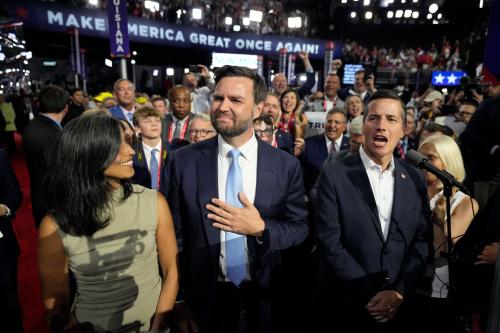
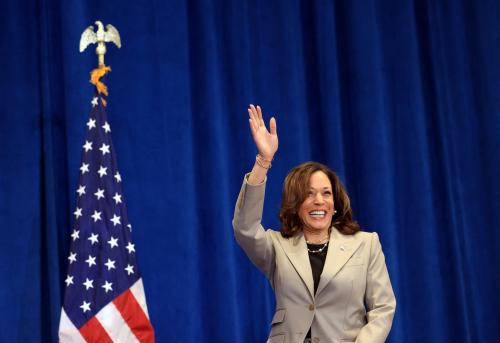
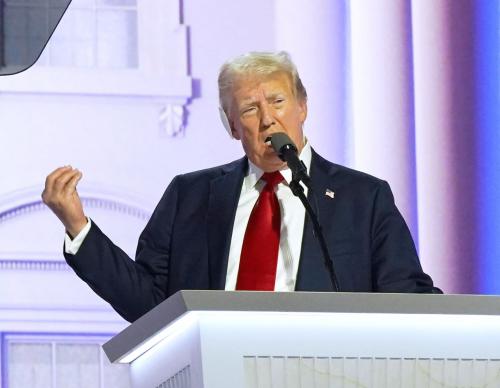

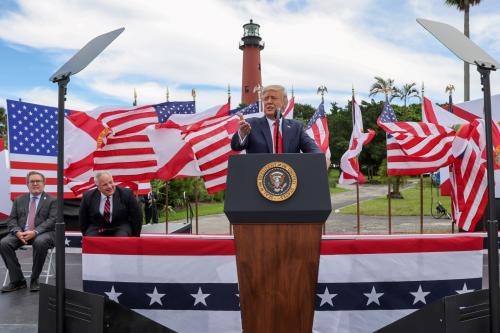
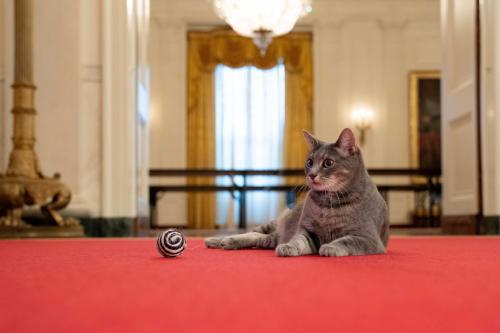
Commentary
Why is Kamala Harris wrapping up the Democratic nomination so quickly?
July 23, 2024